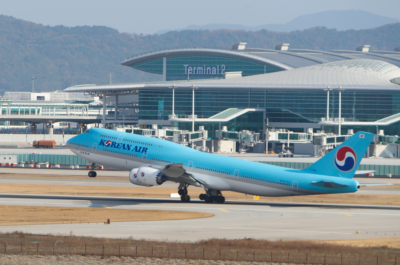Egencia, an Expedia, Inc. company, unveiled its 2010 Corporate Travel Forecast and Hotel Negotiability Index, finding that average ticket prices (ATPs) for corporate travelers to top business travel destinations are expected to increase globally, with a 5 to 10 percent increase anticipated in key North American cities. Egencia’s Hotel Negotiability Index looks at city-specific data to help business decision makers gauge travel program opportunities while planning. This year’s Index analyzes corporations’ buying power in nearly 40 global cities…
 Egencia, an Expedia, Inc. company, unveiled its 2010 Corporate Travel Forecast and Hotel Negotiability Index, finding that average ticket prices (ATPs) for corporate travelers to top business travel destinations are expected to increase globally, with a 5 to 10 percent increase anticipated in key North American cities. Egencia’s Hotel Negotiability Index looks at city-specific data to help business decision makers gauge travel program opportunities while planning. This year’s Index analyzes corporations’ buying power in nearly 40 global cities.
Egencia, an Expedia, Inc. company, unveiled its 2010 Corporate Travel Forecast and Hotel Negotiability Index, finding that average ticket prices (ATPs) for corporate travelers to top business travel destinations are expected to increase globally, with a 5 to 10 percent increase anticipated in key North American cities. Egencia’s Hotel Negotiability Index looks at city-specific data to help business decision makers gauge travel program opportunities while planning. This year’s Index analyzes corporations’ buying power in nearly 40 global cities.
The study evaluates global industry trends, macroeconomic factors, in-depth research of supplier markets and capacity to deliver a current report on air, hotel and car rental trends in both domestic and international destinations.
“Overall, we expect to see some year-over-year recovery of business travel in 2010 as economies stabilize around the world,” said Rob Greyber, President of Egencia. “The resulting demand coupled with suppliers maintaining capacity discipline is expected to push air prices higher in many business destinations.”
North America
Despite continued depressed demand for front of cabin travel, increased low-cost competition and ancillary fees contributing downward pressure on ATPs, several factors are likely to push corporate travel prices upward, including: the post-recession economy impacting corporate travel demand, airlines maintaining capacity discipline, recent airline industry mergers, and the persistent inflation risk.
Conversely, average daily rates (ADRs) for business travelers are expected to stay flat or decrease up to 5 percent year-over-year for key cities. Though pent-up demand, renewed strength in certain business sectors and increased meetings/conference spend are expected to contribute upward pressure on pricing, lower air capacity bringing fewer travelers is likely to maintain or decrease ADRs. Additionally, the abundance of short term hotel supply from 2008 – 2009, rising air prices and corporate contracts leveraging reduced rates already in place for 2010 will add further downward pressure.
Charts below illustrate year-over-year 2010 vs. 2009 ATP and ADR figures in the local currency in selected business travel destinations around the world for North American points of sale.
For the U.S. car rental industry, 2009 was an unusual year. Car rental prices for business travelers increased 10 to 20 percent, while lack of financing coupled with the troubled automaker industry made it difficult for rental agencies to replenish their fleets. Egencia expects the situation to be alleviated somewhat in 2010 with car rental prices decreasing 5 percent year-over-year due to restored financing and increased competition for consumers/business travelers.
Supply Outlook: Hotel Negotiability
Egencia’s Hotel Negotiability Index, an indicator of the overall supply landscape in top North American cities, suggests that 2010 will remain a buyer’s market for corporations during at least the first two quarters. The majority of major North American business destinations will maintain high negotiability, with the exceptions of Boston and Washington DC.
Boston, for example, has been less affected by the recession compared with other business destinations, so the anticipated influx of business travel and limited new capacity could make negotiations for that region more challenging. Washington DC will be a challenging destination for negotiations due to the increased role government is playing in multiple sectors of the economy.
2010 Hotel Negotiability Index for North America
“With a few exceptions, the hotel negotiation opportunity for travel and business decision makers is strong for 2010,” said Pam Keenan Fritz, Senior Vice President of Egencia North America. “We advise our clients to move forward with negotiations now or in the near term to take full advantage of the climate, arming themselves with data to show how they can influence volumes.”
Travel Management Trends
Egencia surveyed more than 100 travel managers on cost control measures, travel spend and expectations for 2010. According to survey respondents, 59 percent say company travel has slightly or significantly reduced this year, compared with 48 percent a year ago in October 2008. Ten percent reported a slight increase in business travel compared with only 3 percent a year ago.
The top cost-cutting measures travel managers are using include: Advanced booking of airline tickets (57%, up from 55% in fall 2008)Rigorous enforcement of travel policy (52%, up from 44%)Active tracking of unused tickets (45%, up from 44%)Requiring pre-trip approval (44%, up from 43%)
“The difficult economy of 2009 coupled with better travel management reporting and tools has driven travel and procurement managers to take stronger control of their programs,” said Keenan Fritz. “This is evident in the trends we are seeing with policy enforcement data and negotiations – one third of travel managers say they are evaluating and making changes to their travel programs more frequently.”
Strategic meetings management has been a growing theme for the corporate travel industry in 2009, and there is healthy opportunity for further consolidation between meetings and business travel programs into 2010. As companies resume investment in meetings and incentives, there is a greater focus on budget management and delivering significant ROI on meetings spend.
Europe
Pricing for both corporate travel ATPs and ADRs in top European business travel destinations are expected to rise slowly. European cities have shown signs of positive growth, and business demand will begin to increase in travel especially in finance markets. Recent airline capacity cuts, increased focus on carrier profitability and recent shifts in the airline industry including the Delta/Northwest merger and Air France and Air Italia consolidation are also contributing upward pressure. Hotels located in these business hubs are likely to benefit from the increased demand.
Asia-Pacific
Corporate travel ATPs are expected to rise just slightly across Asia-Pacific cities due to increased demand outstripping supply. However, Egencia expects fewer business travelers to the region to mean lower to flat ADRs, with the exceptions of Sydney and Singapore, which may see a small rebound in pricing.
Theodore is the Co-Founder and Managing Editor of TravelDailyNews Media Network; his responsibilities include business development and planning for TravelDailyNews long-term opportunities.













































![[PR] PR_Ascott and Vimut Hospital_2024](https://www.traveldailynews.asia/wp-content/uploads/2024/04/PR-PR_Ascott-and-Vimut-Hospital_2024-400x265.jpg)


















